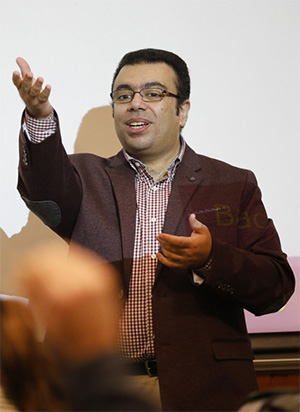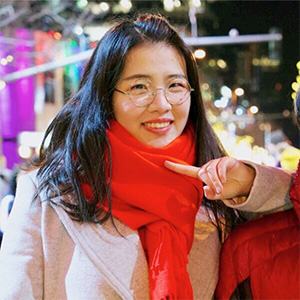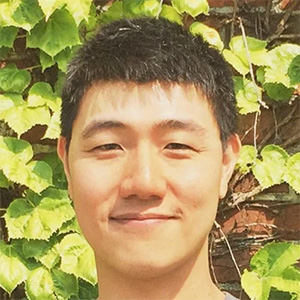International Conference Recognition Signals IoT Strength at UW Tacoma
A student-faculty team are co-authors on award-winning research into resource matching for the Internet of Things (IoT).
A research team from the School of Engineering & Technology (SET) – comprised of recent graduate alumni and their faculty mentor – recently won a top award at a prestigious international technology conference for their poster proposing a better way to manage computing resources needed in so-called “edge clouds.”
“The award is a reflection of the quality and depth of research our students and faculty are conducting,” said Dr. Rajendra Katti, Professor and SET Dean. “Our work on IoT joins similarly cutting-edge achievements in artificial intelligence, bioinformatics, cryptography, machine learning and web science.”

“There were about sixty papers in the conference track whose authors are affiliated with top institutions around the world, like Alibaba, Amazon, IBM, Microsoft, MIT, National University of Singapore, University of Tokyo, Tianjin University, and others” said Dr. Eyhab Al-Masri, SET assistant professor and paper co-author. “I am delighted and honored that the team’s research contribution in edge clouds over the past few months has received this recognition.”
“As the physical and digital worlds continue to interweave with more devices connected to each other, computational intelligence with powerful AI-capabilities must shift closer to the edge of the network,” said Al-Masri. “Optimizing those distributed processing tasks on the edge becomes crucial. Our work seeks to dynamically allocate resources more efficiently across edge-based environments.”
“This award is a reflection of what makes UW Tacoma a special place,” said Al-Masri. “We are able to foster research that addresses modern challenging problems in IoT and provide opportunities for our students not only to succeed but to lead other researchers around the world."
The Conference and Poster
Jiaqi Wang, ’20, Zac Lu, ’17, ’19, and Dr. Al-Masri are co-authors on a poster paper entitled “Edgify: Resource Allocation Optimization for Edge Clouds Using Stable Matching.”

At The Web Conference Taipei 2020, the team was awarded “Best Poster,” one of just three best-of awards presented at the conference. Due to the ongoing COVID-19 pandemic, the conference, which ran April 20-24, shifted to an all-online format.
Meeting annually since 1994, the conference is regarded as the premier academic venue for the topic of the future direction of the World Wide Web. Beginning in 2022, sponsorship of the conference will pass from the International World Wide Web Conference Committee (IW3C2) to ACM, the Association for Computing Machinery.
Another UW Tacoma student, Hu Zhao, co-authored with Dr. Al-Masri a well-received paper for the conference entitled “A User-Centered Handoff Procedure in 5G Cellular Networks,” describing a model for integrating IoT devices into 5G networks.
Edgify, a Dynamic Resource Provisioning Model
In their poster and an accompanying paper, the authors introduce Edgify, a name they have given to their edge-cloud resource provisioning model.

The model addresses a growing challenge in computing and networking architecture: as more and more applications, services and platforms have shifted to an Internet-based cloud computing environment, and as more devices have themselves become computerized and generate vast quantities of data (the “Internet of Things”), issues such as cost, efficiency, speed, availability and security threaten to become barriers to further innovation.
In response, hardware, network and software engineers have been immersed in developing ways to shift computing resources to the edge of the cloud. That massive shift in computing resources itself creates problems; something is needed to ensure the resources are deployed dynamically and efficiently, which is where Edgify comes in.
Using the resource allocation scheme proposed by the authors via Edgify, edge-computing applications can be optimized for ultra-low latency, quality of service requirements, and real-time inferencing. Systems where this kind of real-time control is vital include aircraft navigation, nuclear reactor safety, electrical power, emergency response and self-driving vehicles.
The Research Experience
Zac Lu and Jaiqi Wang were classmates in Dr. Al-Masri’s TCSS 573 (“Internet of Things”) class during spring quarter of 2019. “We had fun in that class and decided to dive deep in the area of IoT,” said Wang. He and Lu started the Edgify research under the supervision of Dr. Al-Masri as an independent study during autumn of 2019.
“It was a great experience,” said Lu. “The Edgify project gave me a taste of what research looks like.”
“Dr. Al-Masri provided us with a lot of valuable readings and resources,” said Wang. “When we got stuck, it was Dr. Al-Masri that suggested we explore the ‘stable matching algorithm’ and try applying it to our data.”
Wang is referring to a method used to match computing needs and computing services when designers know what the ideal (“stable”) matching would be based on measureable traits like cost, speed and availability.
According to both Wang and Lu, the greatest value of their experience working on the Edgify research wasn’t the breakthrough on the design of Edgify. “The most important thing Dr. Al-Masri taught us,” said Wang, “is not related to one topic, but the way to do research on anything.” Both Wang and Lu, who now work as software engineers for different companies, have been able to apply the approaches they established at UW Tacoma to their professional tasks.



